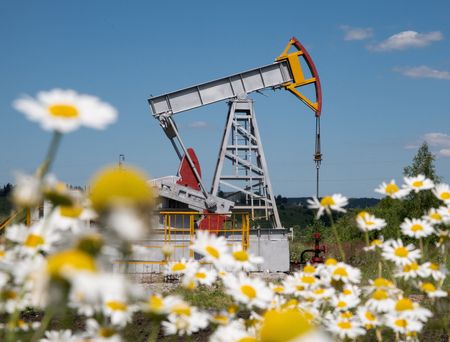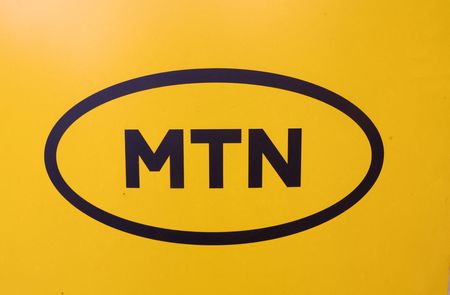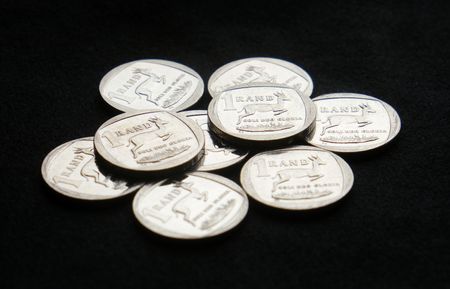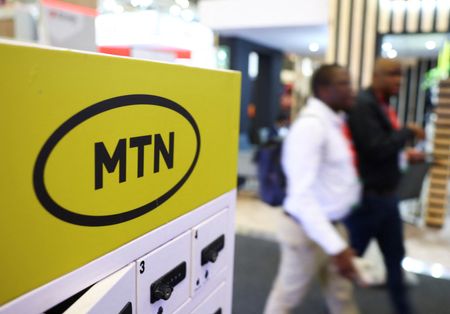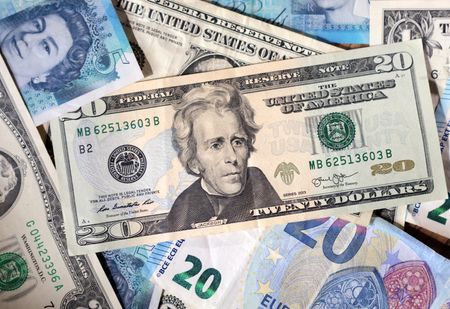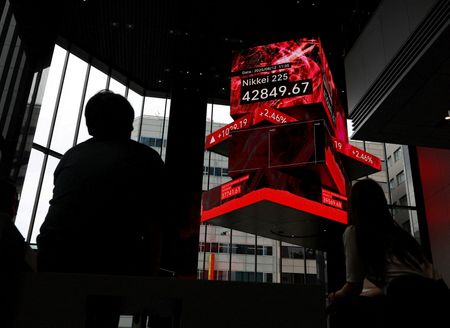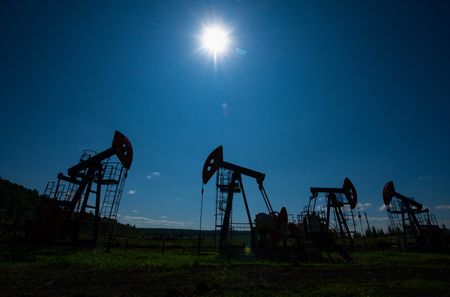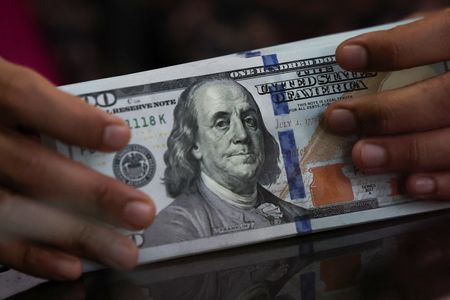By Florence Tan and Sam Li
SINGAPORE (Reuters) -Oil prices rose on Monday after White House trade adviser Peter Navarro said India’s purchases of Russian crude were funding Moscow’s war in Ukraine and had to stop.
Brent crude futures rose 30 cents, or 0.46%, to $66.15 a barrel by 0629 GMT while U.S. West Texas Intermediate crude was at $63.19 a barrel, up 39 cents, or 0.62%.
Navarro said in an opinion piece published in the Financial Times that if India wants to be treated as a strategic partner of the United States, it needs to start acting like one.
“India acts as a global clearinghouse for Russian oil, converting embargoed crude into high-value exports while giving Moscow the dollars it needs,” Navarro said.
The market’s swift rebound after Navarro’s comments highlights how fragile sentiment is. Any sign of Washington tightening its stance on India’s Russian oil purchases reintroduces a risk premium, said Priyanka Sachdeva, senior market analyst at brokerage Phillip Nova.
“The U.S. adviser’s sharp words on India’s Russian crude imports, paired with postponed trade talks, revive concerns that energy flows remain hostage to trade and diplomatic frictions, even as peace prospects in Ukraine brighten,” Priyanka added.
Oil prices fell during early Asia trading after U.S. President Donald Trump met Russian President Vladimir Putin in Alaska on Friday and emerged more aligned with Moscow on seeking a peace deal instead of a ceasefire first.
Trump will meet Ukrainian President Volodymyr Zelenskiy and European leaders on Monday as the U.S. president presses Ukraine to accept a quick peace deal to end Europe’s deadliest war in 80 years.
“The status quo remains largely intact for now,” RBC Capital analyst Helima Croft said in a note, adding that Moscow would not walk back territorial demands while Ukraine and some European leaders would balk at the land-for-peace deal.
On Friday, Trump said he did not immediately need to consider retaliatory tariffs on countries such as China for buying Russian oil but might have to “in two or three weeks”, cooling concerns about a disruption in Russian supply.
China, the world’s biggest oil importer, is the largest buyer of Russian oil, followed by India.
Investors are also watching for clues from Federal Reserve Chairman Jerome Powell’s comments at this week’s Jackson Hole meeting regarding the path of interest rate cuts that could boost stocks to further records.
“It’s likely he will remain noncommittal and data-dependent, especially with one more payroll and Consumer Price Index (CPI) report before the September 17 FOMC meeting,” IG market analyst Tony Sycamore said in a note.
(Reporting by Florence Tan in Singapore and Sam Li in Beijing; Editing by Christian Schmollinger, Clarence Fernandez and Emelia Sithole-Matarise)

